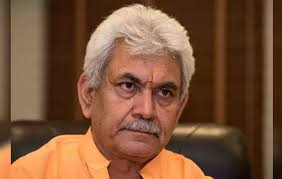To help families that lost loved ones to terror, J&K readying centralised database, helplines

The Union Territory of Jammu and Kashmir has taken a significant step to support families who lost loved ones to terrorism. Under the leadership of Lieutenant Governor Manoj Sinha, the administration has introduced a centralised digital portal, local helplines, and quick-response welfare programs. These efforts aim to offer faster relief, ensure transparency, and deliver long-overdue justice to grieving families.
Digital Shift: One Portal for All Victim Services
The core of this new initiative is a centralised online portal, developed by the Jammu and Kashmir Home Department in partnership with the National Informatics Centre (NIC). This system brings all relevant data together in one place. District-level officials enter verified information about affected families, including:
- Personal details of victims,
- Status of financial compensation,
- Progress on government job applications for relatives,
- Reports of property seized by terrorists or their sympathisers.
This digital approach allows the government to track each case in real time. It prevents duplicate entries and identifies false claims. More importantly, it ensures that no genuine family is left out. This marks a sharp departure from the slow and inconsistent relief processes of the past.
District Helplines Offer Immediate Assistance
To make help more accessible, the administration has launched helpline numbers and grievance support cells in every district. Trained staff are available from 10 AM to 6 PM, Monday through Saturday. Families can call, raise concerns, and get updates on their applications without traveling long distances.
In addition, divisional helplines offer support at a broader level:
- Kashmir Division: 0194‑2487777
- Jammu Division: 0191‑2478995
These lines connect directly to the central control rooms, allowing quick follow-ups. Many victims’ families have welcomed this change, especially those from rural and border areas who previously struggled to contact the authorities.
High-Level Oversight with Special Monitoring Cells
To ensure proper execution, the government has set up Special Monitoring Cells in the Lieutenant Governor’s Secretariat and the Chief Secretary’s Office. These cells supervise key issues, such as:
- Delayed or denied compensation,
- Pending government job offers,
- Cases that were closed without proper investigation,
- Illegal occupation of homes or land by terror elements.
Lieutenant Governor Manoj Sinha directed officials to reopen old cases and file new FIRs when needed. He emphasized that every victim deserves a fair investigation and closure, regardless of how much time has passed. This proactive stance reinforces the administration’s commitment to justice.
Timely Jobs and Financial Help for Victim Families
The government has already made progress in offering relief. In Baramulla district, over 40 affected families received appointment letters for government jobs. These jobs, offered under the compassionate appointment policy, are being delivered within 30 days of the claim submission.
Officials also assist families in accessing self-employment schemes, such as MUDRA loans and small business grants. This dual approach—offering jobs or helping families start businesses—aims to create long-term financial stability.
Unlike earlier systems, which often delayed or denied claims, the current structure includes deadlines and follow-ups. As a result, more families are receiving the help they deserve, and they are receiving it on time.
Restoring Property and Reinvestigating Old Cases
Beyond financial aid, the administration is addressing property-related injustices. Many families lost their land or homes to militants. Now, the government is identifying such properties and launching recovery efforts. Legal action is also underway to evict illegal occupants and return the land to rightful owners.
Furthermore, the government has begun to reinvestigate long-forgotten terror cases. Previously, many FIRs went unresolved due to political interference, lack of resources, or safety concerns. Today, senior officials are actively reopening these cases and pursuing justice for the victims.
Transparent Governance Builds Public Trust
This comprehensive program brings transparency, speed, and accountability to victim support. The portal creates a digital trail that tracks each request. Helplines offer live updates and human interaction. Special monitoring ensures that each department fulfills its responsibilities.
These changes help rebuild public trust. Families now feel that their voices matter and that the government is finally taking responsibility for past neglect.
Conclusion
Jammu and Kashmir’s new centralized support system is more than just a digital upgrade. It reflects a shift toward compassionate, transparent, and justice-driven governance. By combining technology, administrative reform, and empathy, the Union Territory has set a strong example for how to support victims of violence.
As more families register on the portal and receive assistance, the region moves closer to healing. These efforts show that even in conflict-torn areas, hope and justice can prevail—when backed by clear policy, committed leadership, and timely action.






